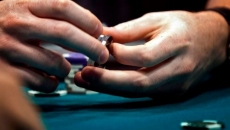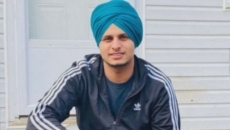India is warning students headed to Canada of security risks just weeks after its top envoy highlighted their safety, as diplomacy and intelligence experts warn a months-long diplomatic row with India is only just beginning.
The building spat undergirds calls for more transparency, and a look at how Canada tackles foreign interference.
"The work needs to be done in-house, to make sure that we're in a position that next time any state tries to interfere to this extent, that we're able to detect and disrupt that operation," said Jessica Davis, a counterterrorism expert.
Tensions flared after Prime Minister Justin Trudeau announced Monday that Canadian intelligence services are investigating "a potential link" between India's government and the death of Sikh leader Hardeep Singh Nijjar in B.C.
Prime Minister @JustinTrudeau addressed the Parliament and all Canadians regarding the tragic murder of Hardeep Singh Nijjar.
— Sukh Dhaliwal (@sukhdhaliwal) September 18, 2023
"Any involvement of a foreign government in the killing of a Canadian citizen on Canadian soil, is an unacceptable violation of our sovereignty." pic.twitter.com/h7pLPo4lah
India calls those claims "absurd and motivated," leading Trudeau to urge India to take the allegations seriously and co-operate with a police investigation.
Canada expelled a senior Indian diplomat Monday, and India has responded in kind, while claiming the move came out of concerns that Canada is harbouring extremists who want a separate country for Sikhs.
India expels a senior Canadian Diplomat: https://t.co/TS8LHCUuuY pic.twitter.com/Y0pXq3v1DG
— Arindam Bagchi (@MEAIndia) September 19, 2023
On Wednesday, India announced a travel advisory for its citizens, warning them to "exercise utmost caution" in Canada due to "growing anti-India activities and politically condoned hate crimes and criminal violence in Canada," without providing examples.
"Given the deteriorating security environment in Canada, Indian students in particular are advised to exercise extreme caution and remain vigilant," the advisory reads.
Advisory for Indian Nationals and Indian Students in Canada:https://t.co/zboZDH83iw pic.twitter.com/7YjzKbZBIK
— Arindam Bagchi (@MEAIndia) September 20, 2023
India is the largest source of foreign students for Canadian post-secondary institutions, many of which rely on their higher tuition payments to fund costs for domestic students.
The Tuesday statement comes three weeks after India's high commissioner to Canada insisted that he had no major concerns about his country's students in Canada, other than cases of fraud.
"We are happy, largely," Indian High Commissioner Sanjay Kumar Verma told The Canadian Press in an Aug. 31 interview. "No system could be foolproof. It doesn't matter however you try, and therefore there will always be possibilities of fraud going on."
Verma at the time mentioned the exploitation of students working in Canada as the only safety concern he had.
"We are trying to learn from each other, through dialogue with our Canadian counterparts as to what could be loopholes in the system," he said.
Verma added that Ottawa and New Delhi had been looking at a "framework on mobility" to prevent fraud, to ensure that employers don't run afoul of Canadian laws. "There's no issue between the government, for the government, or for the system," he said.
Hours after India's advisory, Immigration Minister Marc Miller dismissed the new claims, saying it's important to maintain calm in Canada but the country remains safe.
"People should read that statement for what it is," he told reporters on Parliament Hill. "Canada by any standard is one of the safest, if not the safest, country in the world that is governed by the rule of law."
Nevertheless, Roland Paris, who leads the University of Ottawa graduate school of international affairs, says a chill with India is likely just starting, and it's unclear whether those tensions will get better or worse as the investigation of Nijjar's death continues.
"We're at the early stages of this period of diplomatic tension between the two countries," he said in an interview.
"It will be difficult, now that the Indian government has so publicly dug in their heels and offered a categorical denial of these allegations."
Nijjar was shot outside his gurdwara in Surrey, B.C., on June 18. Members of the Sikh community have accused the Indian government of being behind the killing and attempting to silence voices advocating for an independent Sikh country.
Public Safety Minister Dominic LeBlanc said Tuesday that the RCMP has a plan to look after members of Canada's Sikh community, and he has instructed CSIS to share any pertinent information about Nijjar's death with police.
Paris, a former foreign policy adviser to Trudeau, said it's unclearwhether India will further retaliate against Canada, such as by blocking trade or delaying visas. He noted Ottawa might take similar steps against India.
"It looks like they were really trying to work back channels and use behind-the-scenes diplomacy to produce results directly with the Indians, and with the help of close Canadian allies. That clearly didn't work in the end," he said.
But Paris noted India and Canada typically think of themselves as friends, despite long-standing tensions over Sikh separatists.
"I don't anticipate a lot of movement unless more information comes to light," he said.
Davis said Canada has existing laws that can prevent foreign-interference activities, but they're not always used. She said Canada could also send a message that it takes meddling seriously by fulfilling promises to launch both a beneficial ownership registry and a foreign-agent registry.
"We have a lot of room for improvement, but we are also facing a bit of a changing geopolitical context, that maybe we haven't entirely woken up to yet," said Davis, the head of Insight Threat Intelligence.
She said Canadian security officials take foreign interference seriously, but many agencies have long said they are short-staffed, and there is a difficulty crafting policy to deal with threats that are "difficult to quantify in the short term."
"Our law enforcement security services have taken it quite seriously for a good number of years," she said. "The problem comes when you try to get the attention of policymakers, either senior bureaucrats or elected officials."
She said Canada could also share more information about threats, arguing there is a tendency to keep silent and to only name-and-shame states for political gain. A more measured, transparent approach could demonstrate to citizens and to foreign countries that Ottawa won't tolerate meddling.
"We need to find some sort of middle ground where we're able to name and shame states that are engaging in anti-democratic activities in Canada, but in a meaningful way that isn't super politicized," said Davis, a former analyst for the Canadian Security Intelligence Service.
For example, Australia in February went public with news that its spy agency had shut down an attempt by Iranian proxies to target a dual citizen for organizing protests in Australia that were critical of Iran.
"They need to provide a little bit more (detail on the Nijjar case) so that we can verify the allegations to a certain extent," Davis said.
"There's going to be real limits on that, obviously, because of the nature of the intelligence, some of it may not even be ours to share," she said.
On Monday, Conservative Leader Pierre Poilievre called on Trudeau to share more information about the intelligence Ottawa has on the Nijjar case, and former Liberal foreign minister Marc Garneau similarly said the government ought to back up the claim with more detail.
— Pierre Poilievre (@PierrePoilievre) September 18, 2023
Paris said the entire issue underscores the importance of addressing foreign interference writ large.
"It's important for Canada to work closely with its allies to resist these kinds of pressures," Paris said.
"But first and foremost, we need to be able to resist them here at home. It's a much more dangerous world that we're living in, and we cannot rely as extensively as we have in the past on our allies. We really need to make sure that we're protecting Canadians in this."
But Paris noted India and Canada typically think of themselves as friends, despite long-standing tensions over Sikh separatists.
"I don't anticipate a lot of movement unless more information comes to light," he said.
Xavier Delgado, a Canada analyst with the Wilson Center in Washington, noted that the episode may impede Ottawa's efforts to join the U.S.-led Indo-Pacific Economic Framework.
"The tit-for-tat expulsion of diplomats from Ottawa and New Delhi is likely the first, not last, step towards a new diplomatic normal," Delgado wrote in a Wednesday analysis note.
Carleton University professor Vivek Dehejia studies Canada-India bilateral relations, which he said are in a "deep freeze" after Trudeau's "bombshell" announcement.
"This is really the lowest ebb we've been at with India in forever, to be honest," the economist said.
Dehejia said relations have been strained since Trudeau's "disastrous" 2018 trip to India, where he wore a "Bollywood trunk show wardrobe" and Canada's high commission allowed a convicted terrorist to appear on a reception guest list.
But he said Canada remains important for India since it's a G7 country with a huge diaspora chock-full of personal and business relationships.
Davis said Canada has existing laws that can prevent foreign-interference activities, but they're not always used. She said Canada could also send a message that it takes meddling seriously by fulfilling promises to launch both a beneficial ownership registry and a foreign-agent registry.
"We have a lot of room for improvement, but we are also facing a bit of a changing geopolitical context, that maybe we haven't entirely woken up to yet," said Davis, the head of Insight Threat Intelligence.
She said it's hard to craft policy that deals with threats that are "difficult to quantify in the short term."
"Our law enforcement security services have taken it quite seriously for a good number of years," she said. "The problem comes when you try to get the attention of policymakers, either senior bureaucrats or elected officials."
Davis, a former analyst for the Canadian Security Intelligence Service, said Canada could also share more information about threats, arguing there is a tendency to keep silent and to only name-and-shame states for political gain.
"They need to provide a little bit more (detail on the Nijjar case) so that we can verify the allegations to a certain extent," Davis said.
"There's going to be real limits on that, obviously, because of the nature of the intelligence; some of it may not even be ours to share," she said.






